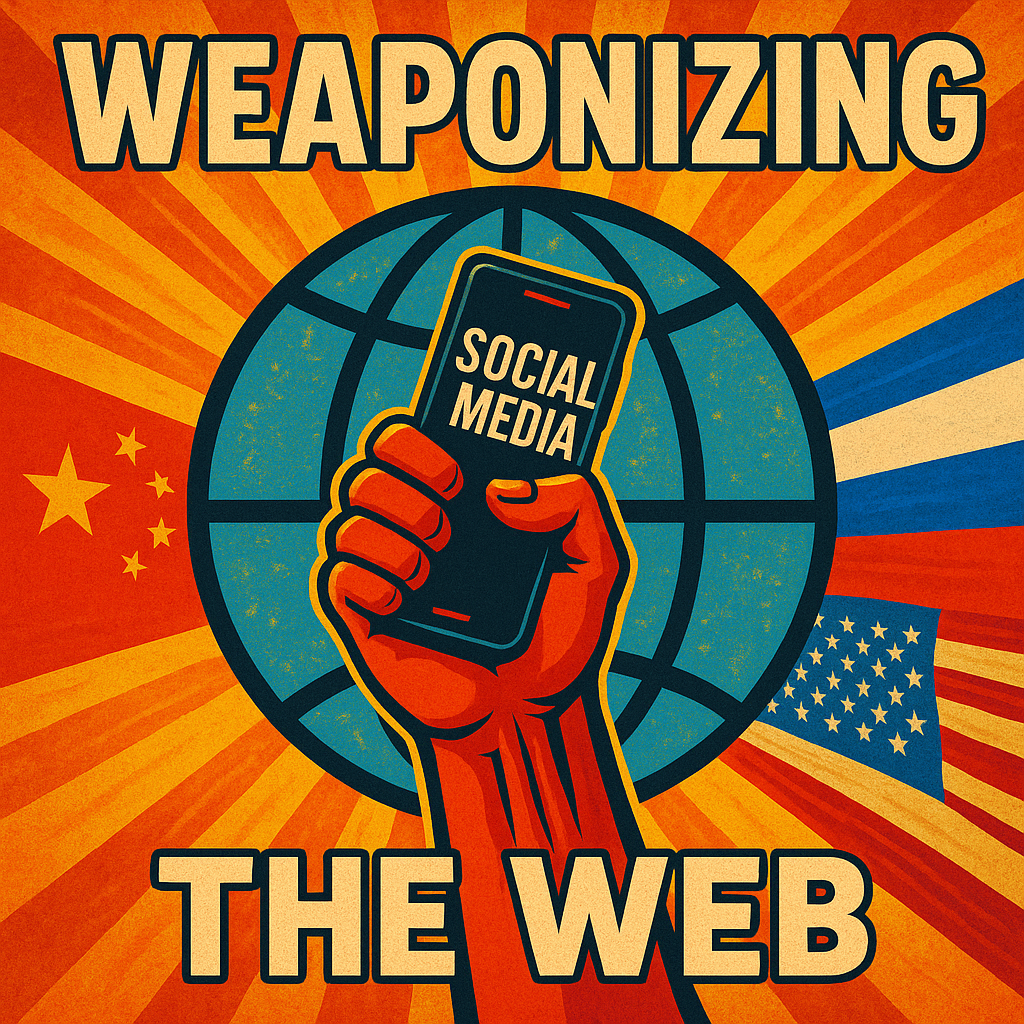Politicians Need to Stop Fear Mongering and Promoting Hate for Political Gain!
In the current political climate, fear mongering and the promotion of hate have become distressingly common tactics employed by politicians seeking to gain power or advance their agendas. This article sheds light on the detrimental consequences of such practices and emphasizes the urgent need for a shift towards responsible and compassionate political discourse.
By examining the rise of fear mongering, analyzing the tactics used, and exploring the impact on society, we can better understand the dangers these practices pose to our communities. Additionally, this article will discuss the role of media in amplifying fear and hate, strategies for holding politicians accountable, and the importance of promoting unity and compassion as alternatives. It is high time for politicians to recognize the harm they inflict and embrace a more inclusive and respectful approach to governance.
The Rise of Fear Mongering in Political Discourse
Fear mongering seems to have become a staple in the world of politics. It is no longer surprising to see politicians resorting to fear tactics to further their agendas and gain support. But how did we get here?
Understanding the Historical Context
Throughout history, fear has been a powerful tool used by leaders to manipulate and control the masses. From ancient times to modern societies, fear has been employed to justify wars, consolidate power, and sway public opinion. It taps into our natural instincts for self-preservation, making it an effective tool in the hands of politicians.
Manipulating Emotions for Political Gain
Politicians know that fear is a potent emotion that can override rational thinking. By exploiting this vulnerability, they can manipulate public opinion, gaining support by stoking fears about various issues, be it immigration, economic instability, or national security. This emotional manipulation often overshadows substantive discussions and prevents meaningful dialogue.
The Consequences of Hate Promotion by Politicians
While fear mongering may prove beneficial for politicians short-term, the long-term consequences can be severe and far-reaching. Promoting hate and fear in politics contributes to the polarization of society. It divides us along ideological lines, amplifying existing divisions and undermining social cohesion. Instead of fostering unity and understanding, hate promotion deepens the divides, making it difficult to find common ground and address pressing issues collectively.
Impacts on Minority Communities
Hate promotion disproportionately affects minority communities. Scapegoating and demonizing certain groups not only perpetuate stereotypes but also subject these communities to discrimination and violence. This further marginalizes already vulnerable individuals and perpetuates systemic inequalities.
Examining the Tactics Used in Fear Mongering
To effectively fear monger, politicians employ various tactics that exploit our insecurities and uncertainties. One common tactic is to divert attention from complex societal issues by blaming specific groups or individuals for these problems. By creating scapegoats, politicians redirect public anger and frustration towards a target, fostering fear and animosity towards the chosen villains.
Exploiting Uncertainty and Insecurity
Fear mongering thrives in times of uncertainty and insecurity. Politicians exploit these emotions to present themselves as the only solution to these perceived threats. By exaggerating dangers and offering simple, yet often unrealistic solutions, they prey on our fears to gain support and maintain power.
Analyzing the Impact of Hate Promotion on Society
The consequences of hate promotion go beyond political gains and have a lasting impact on society as a whole. When politicians promote hate, it undermines social cohesion and erodes trust among citizens. It fosters an environment of suspicion and hostility, where people become more isolated, wary of one another, and less willing to collaborate for the common good. This erosion of trust hinders social progress and weakens the fabric of society.
Escalation in Hate Crimes and Discrimination
Hate promotion by politicians can contribute to a rise in hate crimes and discrimination. By normalizing prejudiced attitudes and beliefs, politicians create an environment where individuals feel justified in taking harmful actions against targeted groups. This not only perpetuates violence and discrimination but also fosters a culture of intolerance and injustice.
In conclusion, it is crucial for politicians to stop fear mongering and promoting hate. Not only does it harm society and deepen divisions, but it also fails to address the complex challenges we face. Instead, we need leaders who can engage in honest and substantive conversations, fostering unity, empathy, and understanding.
The Role of Media in Amplifying Fear and Hate
Sensationalism and Headline Culture
The rise of sensationalism, it seems like every time we turn on the TV or scroll through our newsfeeds, there’s another headline designed to make our hearts race and our blood boil. Sensationalism is all about getting your attention, regardless of the accuracy or consequences. And when fear and hate are thrown into the mix, it’s a dangerous recipe.
Whether it’s fearmongering about immigration, exaggerating crime rates, or creating panic about global events, sensationalism keeps us hooked and on the edge of our seats. But it also fuels division and animosity, pitting communities against each other. It’s high time we take off our shock-proof goggles and demand a more responsible and nuanced approach from the media.
Media’s Responsibility in Shaping Public Opinion
We all know the power of the media in shaping public opinion. They have the ability to influence how we see the world, how we perceive certain groups or issues, and ultimately, how we vote. With such influence, it’s crucial that the media takes their responsibility seriously.
Promoting hate and fear only perpetuates a cycle of negativity and hostility. Instead, the media should strive for accuracy, fairness, and balance. They should provide a platform for various perspectives, fostering understanding and tolerance. Let’s hold them accountable and demand a media landscape that respects our intelligence and promotes unity, rather than division.
United Against Fear and Hate in Politics
Fostering Intercommunity Dialogue and Understanding
In a world where echo chambers and filter bubbles reign supreme, it’s more important than ever to bridge the gaps between communities. We need to create spaces for open dialogue, where people from different backgrounds can come together and understand each other’s perspectives.
By fostering intercommunity dialogue, we can break down misconceptions, challenge stereotypes, and find common ground. It’s about recognizing that our experiences are diverse, yet interconnected. So let’s put down our defenses, listen, and learn from one another. Because at the end of the day, we’re all in this messy political landscape together.
Encouraging Empathy and Compassion in Politics
Politics can sometimes feel like an arena of ruthlessness and self-interest. But it doesn’t have to be that way. We can inject empathy and compassion into the political bloodstream.
Imagine a world where politicians put themselves in the shoes of those they represent, where policies are shaped with the genuine intention of improving lives, and where compassion guides decision-making. It’s not a far-fetched dream; it’s a choice we can make. Let’s demand more from our politicians and ensure that empathy is not just a campaign buzzword but a guiding principle.
Holding Politicians Accountable for Fear Mongering
Transparency and Fact-Checking
With the rise of misinformation and alternative facts, it’s crucial to hold politicians accountable for their statements. We need a culture of transparency, where politicians are expected to provide evidence for their claims and face consequences for spreading fear and hate.
Fact-checking organizations play a crucial role in debunking falsehoods and exposing fearmongering tactics. By supporting reputable fact-checkers and spreading their findings, we can empower citizens with accurate information and challenge fear-based narratives.
Citizen Activism and Grassroots Movements
When politicians sow seeds of fear and hate, it’s up to us, the citizens, to come together and say, “Enough is enough!” Grassroots movements have the power to mobilize communities, raise awareness, and hold politicians accountable.
Whether it’s through peaceful protests, letter-writing campaigns, or grassroots organizing, citizen activism can create a powerful force for change. By standing united against fear and hate, we can reclaim the political landscape and demand a more inclusive and compassionate society.
Promoting Unity and Empathy as Alternatives to Fear and Hate
Encouraging Positive and Solutions-Oriented Campaigns
Political campaigns often focus on mudslinging and tearing each other down. But what if we flipped the script? What if campaigns highlighted solutions instead of playing on our fears?
By encouraging positive and solutions-oriented campaigns, we can shift the narrative from fear to hope. Let’s demand that politicians outline their plans, engage in substantive debates, and offer visions for a better future. After all, a politics anchored in optimism and collaboration is far more powerful than fear and hate.
So, politicians, it’s time to ditch the fearmongering and hate promotion. Let’s build bridges instead of walls, foster understanding instead of division, and embrace compassion instead of hostility. Our future depends on it.
In conclusion, the prevalence of fear mongering and hate promotion in politics has had far-reaching and damaging effects on our society. It is crucial for politicians to recognize their responsibility in shaping public discourse and to prioritize unity, empathy, and compassion over divisive tactics. By holding politicians accountable, fostering dialogue, and promoting positive change, we can work towards a political landscape that is grounded in understanding and respect. Together, we can build a future where fear and hate are replaced with tolerance and empathy.




